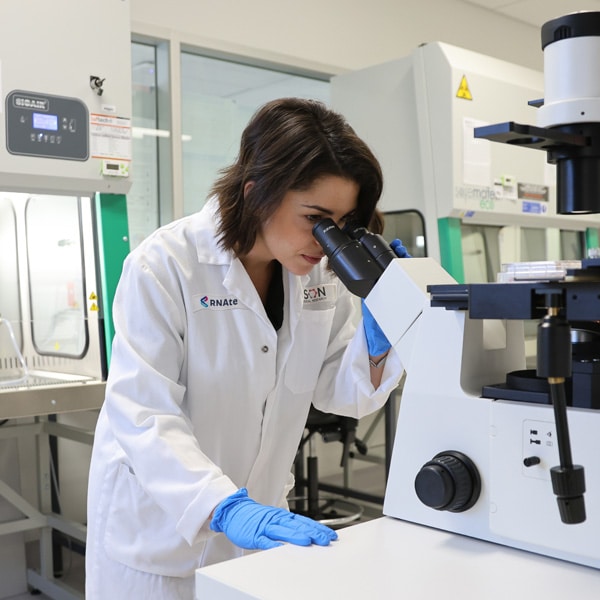Hudson Institute of Medical Research today officially unveiled its world-first RNAte platform that could see vaccines and therapeutic treatments developed faster by being able to rapidly assess their potential inflammation side effects, right here in Victoria.

RNAte Services is a revolutionary platform designed to assess the innate immune response by employing cutting-edge technology that helps predict potential immunoreactivity of mRNA/RNA candidate therapeutics and vaccines in pre-clinical and clinical stages of development.
That gives researchers, clinicians, biotech companies, pharmaceutical manufacturers and regulators the confidence to fast-track new treatments for rare, emerging or existing diseases at a speed and depth not previously possible.
Victoria's Minister for Economic Growth, Tim Pallas announced the Government's $1.94 million investment in the RNAte platform, congratulating Hudson Institute's CEO and Director, Professor Elizabeth Hartland on the development of the new facility.
RNAte protecting the public against future pandemics
"This strategic investment by the Victorian Government will see effective vaccines developed faster and manufactured right here in Victoria, protecting the public against future pandemics and safeguarding against supply-chain disruptions," Mr Pallas said.
"The development of technology like the RNAte platform in Victoria proves that we are a leading destination for biotechnology investment, research and talent, and ensures we remain at the forefront of mRNA innovation."
World-leading mRNA/RNA expertise
Prof Hartland expressed her gratitude to the Minister and the Victorian Government for its financial contribution to this world-leading project.
"We are excited to offer our unique expertise to the mRNA/RNA industry that will allow rapid and high throughput testing for immunoreactivity of new mRNA/RNA products," she said.
"The RNAte Platform will accelerate the development of new vaccines or therapeutics in Victoria and the region."
"In addition to rapid vaccine development, mRNA and nucleic acid-based therapeutics have the potential to change the way we treat a range of diseases, including chronic inflammatory diseases and cancer," Prof Hartland said. "However, we need to ensure that newly developed RNA-based products do not trigger the innate immune system in unexpected ways."
Funder | Victorian Government







